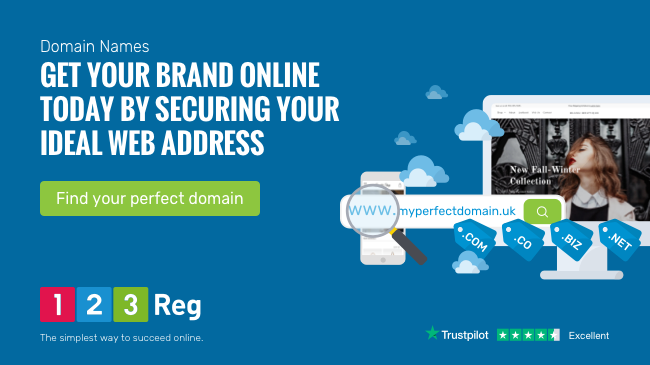How to Start an Online Business (Without Any Money)
Your imagination is your most valuable asset when it comes to starting an online business. It’s all about that great idea. You don’t need cash in the bank, or a computer science degree, to make it happen. A spark of genius can ignite an empire.
Starting strong begins with the essentials: buying a domain, building a website, setting up a custom email address. These steps lay the foundation. Once you’ve set your target, your time and energy will be your initial investment. The beauty of doing business online is its flexibility — you control the business model, the hours, and everything in between. You’re the boss.
For those who prefer an easier route in, selling on an existing marketplace offers an instant audience. If you’re worried about stock inventory and storage space, a model like dropshipping is just one way to earn a profit without ever having to handle products yourself.
Good website builders make it easy to create and publish a professional website in a matter of minutes. There are thousands of great domain names to choose from — many of which costing only about the same for the year as a mobile contract costs per month.
Easier said than done? Well, this is not to say there won’t be stumbling blocks. The competition is pretty fierce out there. And once you’ve decided to launch your online business, there’s the small matter of legal registration and tax compliance. Let’s get into it!
1. Choose a business model | 2. Do your market research | 3. Write a business plan | 4. Choose your online platform | 5. Buy a domain name | 6. Get custom domain email | 7. Soft launch | 8. Registration | 9. Funding | 10. Build on your success
#1 Choose a business model
Think about the core of your business: the product or service you’ll offer. What are you passionate about? What skills and expertise do you possess? Consider the size of your venture: is this going to be a hustle on the side, or a full-time commitment?
When it comes to no-to-low cost online business ideas, here are just some of the models to choose from:
Wholesale (Bulk Distribution)
Wholesale is all about buying products in bulk from manufacturers or distributors, then selling direct to other stores. This could be clothing and apparel, electronics and accessories, food and drink… you name it. Success as a wholesaler depends on one very expensive thing, however: space. You’ll also need time to build a reputation before expanding into bulk distribution.
So, when it comes to ideas for starting an online business from zero, wholesale might be more of a medium-long term model to aim for. Luckily, there are easier ways to get started.
Dropshipping (Inventory-less Retail)
If you’d prefer to avoid managing inventory and shipping — or if space is tight — then dropshipping could be the best option for you.
Here’s the idea: when a customer places an order, it’s shipped directly from the supplier to them. Imagine running an online clothing store. With dropshipping, you can partner with manufacturers to send items straight from the factory to your customers, saving storage space and cutting out the logistical headache.
Dropshipping has a lower barrier to entry than wholesale due to the lack of upfront inventory and storage space costs. Profit margins tend to be lower, as you’re essentially paying the supplier to handle all the fulfillment. But it’s a great place to start.
Reselling
Reselling is about buying products, new or used, and selling them on at a higher price. While the word might conjure up images of selling second-hand goods on eBay, the majority of online shops are essentially resellers.
The reselling model is especially common on major online marketplace platforms. For example, you might purchase popular mobile phones from major retailers and resell them at a higher price. The key difference between resellers and dropshippers is that resellers hold stock, even if only in small quantities.
‘Arbitrage’ is another sort of reselling where sellers set out to profit from price differences between markets. While it can work for some, it’s important to keep everything above board!
Private Label
Going private label is way to build brand identity without the hassle and expense of manufacturing products from scratch. Essentially, you partner with a manufacturer who produces a generic product, which you then customise with your own branding. You can offer unique products under your own name, even if you don’t have the resources to create them yourself.

Handmade Goods and Custom Products
Artisans and craftspeople have long put their skills to work selling handmade goods online. This might includes unique jewellery, clothing, furniture, art, and more. You can add personalisation options for a special touch. A popular subcategory is Print on Demand (POD), where you sell custom items like t-shirts or mugs made especially to order.
Digital Products
This category encompasses a wide range of products, including eBooks, software, digital art, and more. Creating and selling digital products can be a cost-effective way to reach a global audience.
Say you’re the author of a series of eBooks, for instance. You could sell your titles on platforms like Amazon Kindle Direct Publishing, Apple Books, or through your own website. Just be sure to use Digital Rights Management to deter any unauthorised copying and sharing.
Subscription Services (Physical)
Offering products on a subscription basis has the potential to bring in a steady stream of revenue. Subscription boxes filled with curated physical products, such as beauty samples, gourmet snacks, or hobby-related items, offer customers the excitement of receiving new surprises regularly. One popular example might be subscription cooking packs and spices.
Affiliate Marketing
Affiliate marketing is a performance-based way to earn, where you make commission promoting other people’s products or services. Typically, you’ll earn a little for each sale made through unique referral links. The key is to focus on products or services that align with your audience’s interests and needs.
Affiliate marketing can bring significant earning potential for popular bloggers and vloggers, Youtubers and social media influencers — which brings us nicely to the next category…
Freelance Creative
Freelance creative work lets you turn your skills into a flexible way to earn. Set your own rates, choose your hours, and work on your terms. Whether through a freelance platform or your own website, a good portfolio can show off your best work and happy clients.
Creative freelance services might include:
✓ Graphic design
✓ Illustration
✓ Photography
✓ Video production
✓ Animation
✓ Music composition
✓ Voiceovers
✓ Blogging
✓ Copywriting
✓ Vlogging

If you’re the creative type, our guide might come in handy: Portfolio Websites for Creatives
Freelance Services
Got specialised knowledge or skills? You can build a successful online business by offering freelance services to clients around the world. A portfolio website makes it easier to attract and land clients. Platforms like Upwork or LinkedIn can help you connect and show off what you do best. Examples could be:
✓ Consulting
✓ IT services
✓ Virtual assistance
✓ Bookkeeping
✓ Translation
✓ Research
✓ Grant writing
✓ Editing
✓ Proofreading
Teaching & Online Courses
If you’re an expert in a particular subject you can teach online courses. That might be anything from one-on-one English classes to business skills seminars and higher education lectures. Platforms like Udemy and Skillshare provide opportunities to reach a global audience. Of course, you could also find students by building your own website.
#2 Do your market research
The UK’s e-commerce market is one of the largest in the world, valued at over £200 billion in 2023, and predicted to keep on growing.¹
Thorough research is essential before starting an online business. To make an impact, look at trends where you might succeed and any challenges you could face. Research the gaps in the market to identify underserved areas where your business can thrive. Find the sweet spot where your interests align with market demand.
Narrow down your target audience. Instead of catering to everyone, it’s often better to pinpoint a specific niche. A focused approach will let you to tailor what you want to offer, stand out from competitors, and build a loyal customer base.
Building a strong network is essential for any aspiring entrepreneur. Connect with fellow business owners online through groups or forums relevant to your business model.
See also: 2024 Guide to Starting an Online Business
#3 Write your online business plan
Once you’ve settled on your idea, it’s time to create a simple business plan. This should include a brief summary of your idea, mission, and goals, along with a clear marketing and sales strategy.
You can scale up your business (and your website) as your success grows. As you gain more customers and generate revenue, you’ll be able to reinvest the profits into expanding operations, if that’s what you’d like to do. Start small and dream big.
The Prince’s Trust offers a comprehensive Business Plan Pack full of templates and essentials. The British Business Bank is also chock-full of excellent resources for start-ups.
Set realistic goals that are both challenging and achievable, based on the resources you have. Whether it’s sales targets, gaining customers, or financial plans, make sure your goals match your abilities and knowledge to make your plan more credible.
Define your brand. It’s more than just a logo or name — it’s the personality and values your business represents. Create a strong brand story, set your visual style, and establish your brand voice. This will help you create a consistent and memorable experience, so you can stand out and build loyalty with your customers.
#4 Choose your online platform
Option 1: Website Builder
Good in-browser website design tools are the easiest way to build a website and get it up and running quickly. They often let you select your theme and then drag-and-drop content so that you can easily create a website, without the need for an IT team or coding skills.
Website Builder from 123 Reg makes getting online simple, thanks to its user-friendly interface and intuitive features. You’ll find a wide range of themes and templates, making it easy to choose a design that suits your needs. Most of the hard work of web design is done for you, so getting your website online is just a few clicks away.
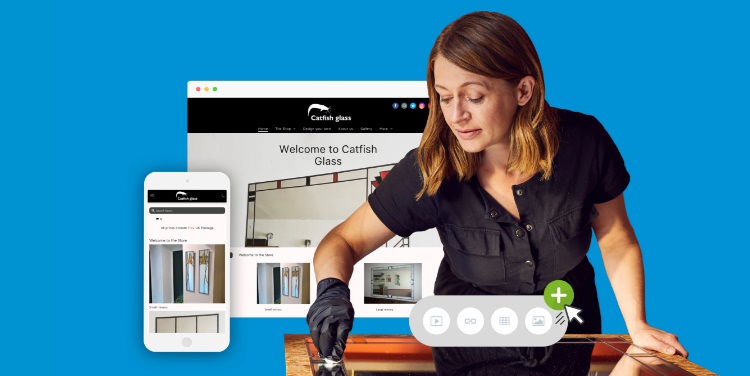
You can scale up as your business grows, adding new features. You can even upgrade to a full ecommerce store with stock control and payment options. With the Website Builder Online Store you get robust SEO tools that can help your site rank higher in search engine results and attract more traffic.
Learn more about creating a website with Website Builder
Option 2: Managed WordPress
WordPress is a great all-round platform for building all sorts of professional websites. While it’s a powerful tool and capable of delivering more advanced features, there’s still no real need for expert tech skills or coding when it comes to taking business online with Managed WordPress.
One of the coolest things about WordPress is the huge range of themes and plugins. Most are free and you can easily customise your site to suit the functionality you need, whether that’s a blog, an online store, or a portfolio. There’s also extensive support community and lots of tutorials available online to help you build a professional website.
Learn more about Managed WordPress from 123 Reg
Option 3: Online Marketplaces
If you’d prefer to find an audience right away, using online marketplaces like Amazon, Etsy, or Amazon can be a good alternative to creating your own website. Setting up a store on these platforms is straightforward and you can start selling almost immediately.
One of the main benefits of using these marketplaces is the ready-made audience. These platforms attract millions of visitors daily, offering a vast potential customer base without the need for extensive marketing efforts. As these marketplaces manage payment processing, that cuts out most technical headaches for sellers.
The major existing marketplaces already have established trust with consumers, which can help customer confidence. But even if you do sell through a marketplace, it can be a smart move to buy a domain name to help establish your brand and your credibility.
Keep in mind that marketplace fees can also eat into your profits. You’ll have less control over branding and customer relationships compared to having your own website.
Also: eCommerce CMS
Content Management Systems like Adobe Commerce (Magento) and Shopify offer robust features, but they’re often designed with bigger enterprises in mind. They tend to come with higher monthly subscription fees and may require technical expertise or a dedicated IT team. As such, they’re arguably not the best choice for budget-conscious startups, but could be options to consider further down the line.
#5 Buy a Domain Name
You can pick up a great domain name for cheap, perhaps even free (or practically free) for the first year. The right choice of domain can significantly impact the success of your online business.
For businesses in the UK, “.co.uk” or “.uk” domains are a great way to establish trust, but extensions, from “.abc” to “.xyz” offer eye-catching and budget-friendly alternatives. Consider creatively pairing your name or business focus with the extension. A yoga instructor could use “.guru,” a graphic designer “.design,” or a karate academy “.ninja.”
See our guide: Names That Click – How to Choose the Right Domain Name
123 Reg offers hundreds of domain extensions to suit any purpose, from traditional “.com” to more inventive options. With some of the UK’s most affordable domains, it’s easy to find the perfect name for your online venture.
#6 Get custom domain email
Getting a custom email address is an important step when starting a new business. A professional email is one that uses your domain name after the @ symbol, like you@yourbusiness.co.uk.
It’s all about standing out in crowded inboxes and sending the right message. Your email should be unique to you and your business, reinforcing your brand with every message you send. When starting a successful online business, there are few better ways to make a great first impression.
For more, check out: Why Every Business Needs a Professional Email Address
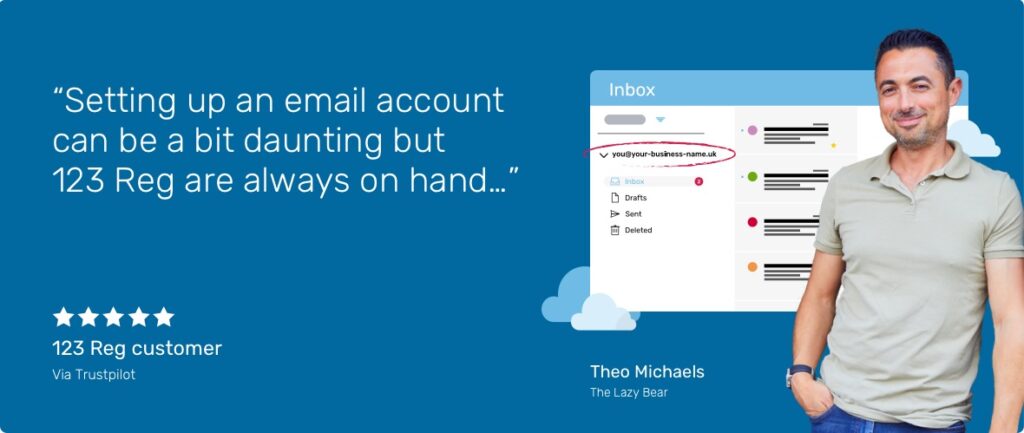
#7 Soft launch
Before you go all-in on your online business idea, try it out with a smaller version or a simple website to see if people are interested.
Test your online business idea with a Minimum Viable Product (MVP). For instance, if you’re launching a clothing line, you can start with a limited collection of a few key pieces to gauge interest, before investing in a full stock inventory.
Create a simple 1-page website with a landing page as a tester. This way, you can get some feedback and see if there’s a demand before you invest time and money.
#8 Register your business
You’ll need to register your business according to your chosen structure, whether you’re a sole trader, partnership, or limited company.
Sole traders and self-employed individuals need to report their earnings and pay income tax through a Self Assessment tax return to HM Revenue and Customs (HMRC). It’s important to charge and report the correct VAT on sales. You should keep detailed records of income and expenses for accurate tax reporting.
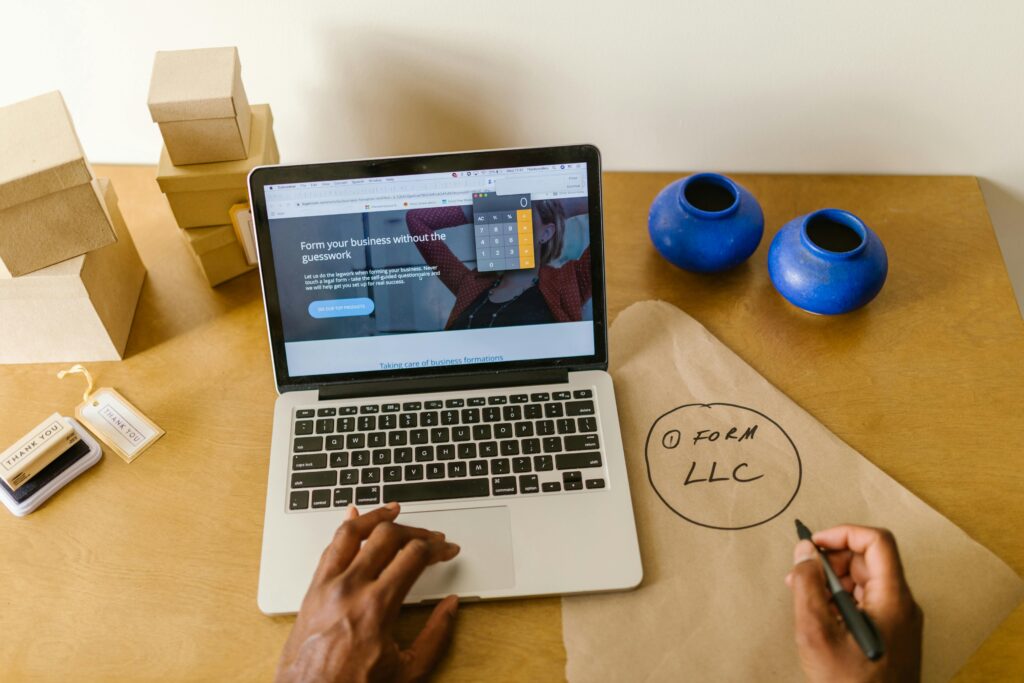
For more, check out the official Companies House resources: Setting up a limited company – step by step
Selling through marketplaces like Amazon or Etsy often means operated as a sole trader without creating a formal company. However, it’s always recommended to check with Companies House and the gov.uk website for official guidance on starting a business in the UK.
Remember we’re not legal experts, here! Take the right steps to keep your financial responsibilities clear and run business smoothly within the UK legal framework.
#9 Get funding
There are lots of options available when it comes to financing your online business. The UK government is keen to support budding entrepreneurs and offers a few different initiatives to help startups and small businesses grow.
The Start Up Loans scheme provides funding and mentoring for those just starting. Start Up Loans range from £500 to £25,000 at a fixed interest rate of 6%. Help to Grow offers free training and discounted software to boost management skills.
Local Growth Hubs should help connect you with resources in your area. These initiatives offer funding, skills, and advice to help new online businesses. Google “local growth hub near me” to see what’s available.
The British Business Bank offers various financing options and support for smaller businesses. Innovate UK is another organisation that supports businesses developing new ideas through funding and collaboration opportunities.
Of course, many UK banks also offer loans for new businesses. You’ll need to submit a clear funding request with realistic projections. Interest rates typically range from 3% to 7%, depending on factors like your creditworthiness, loan amount, and term.

Crowdfunding platforms like Kickstarter or GoFundMe allow you to raise funds from people who believe in your idea. In 2023, the average funding for rewards-based crowdfunding in the UK was around £12,000. With a strong pitch that clearly explains your business, goals, and benefits for backers, this can help cover initial expenses and launch costs.
Another option might be to seek professional investors. Angel investors may offer financial support in exchange for equity or a share of your profits. Beyond the money (and if Dragon’s Den is anything to go by), their experience and mentorship could be just as valuable.
#10 Build on your success
Once your website is live, it’s time to turn your attention to growing your business, and social media is a great way to start. Platforms like Instagram, Facebook, or LinkedIn can help drive traffic to your site and promote any special offers or new product launches.
See also: How to Schedule Social Media Posts 2024
Happy clients are more likely to come back and recommend you to others. Testimonials and case studies showing off your great service act as powerful “social proof” that can help to attract new clients and boost your reputation.
Think about setting up a referral program to reward customers who bring in new business. It can create a snowball effect of positive word-of-mouth that helps your business grow.
Build an email list by offering discounts or helpful content to encourage visitors to sign up. Then, keep them engaged with personalised messages and offers to keep them coming back for more.
Finally, consider starting a blog. It’s a great way to establish your brand as an authority in your field while driving organic traffic to your site. Partnering with influencers or well-known figures can also help you reach a wider audience and build more connections.
See also: Blogging A-Z – Your glossary for success
Wrap up
Your online business dream is closer than you think. The biggest investment you’ll make is your time, energy, and that great idea. With plenty of great domain names as affordable as mobile SIMs, getting started with little to no money is definitely doable. So, what are you waiting for? Turn your passion into profit and start building your online business!
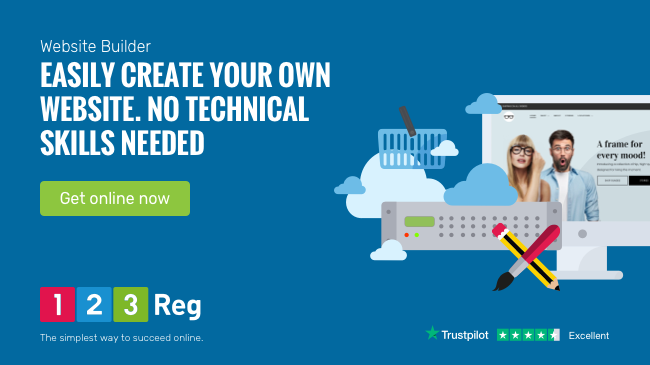
1. https://www.mordorintelligence.com/industry-reports/united-kingdom-ecommerce-market/

